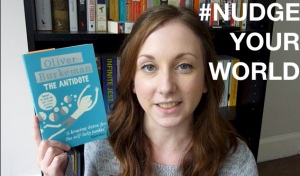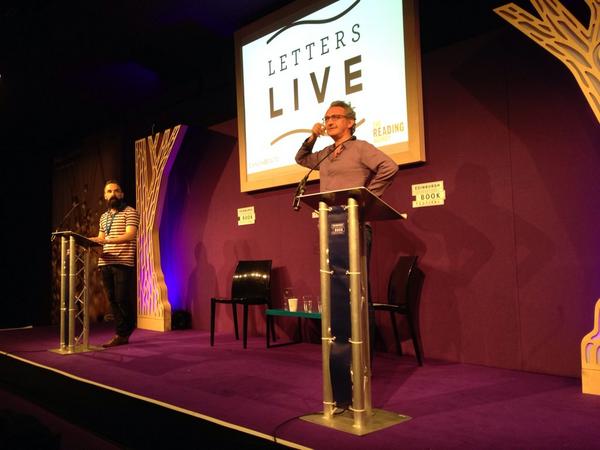
My journey with Oliver Burkeman’s The Antidote continues…
Missed Part I and Part II? Click on the links to catch up.
Chapter 5 – Who’s There?
In Chapter 5 of The Antidote, Burkeman pays Eckhart Tolle a visit. Despite being familiar with the name (who couldn’t name at least one of Oprah’s besties?) I had no idea what he stood for. Turns out he theorises that ‘the self’ does not exist – not in the way that we think it does, at least. He says that we become attached to the voice in our head, that incessant chatterer, and associate with it closely. We think of it as our self – but it isn’t.
Thinking about the ‘self’ is not a new phenomenon. (None of the ideas in this book are. It almost seems like those pre-1900 had it all worked out, to be honest.) Burkeman illustrates another theory by the French 16-17th Century philosopher Descartes – one I’m familiar with from a single undergraduate philosophy module. You know the one: “I think, therefore I am”. It’s The Matrix, basically.
I listened to this chapter on audiobook on a visit to the Fringe, and enjoyed taking in some philosophy on my walk through the streets of Festival-season Edinburgh. Could it be that I’m imagining these thousands of tourists wandering up and down the Royal Mile? That an evil being holds my brain in a jar as I imagine weaving through crowds and dodge sharp-turning taxi cabs?
Entertaining these thoughts made crowd management just a dash more tolerable. It was Hume’s idea that the self is essentially a bundle of perceptions. A touch of annoyance peppered with an urge to move faster. If we can’t define where we begin and end, the crammed train journey home from Edinburgh to Glasgow is but a collection of molecules more tightly pressed together, is it now? Tell that to the guy beside me who is in a blind rage at the lack of platform postage. I guess Tolle is right about one thing, if not the rest: it’s letting our inner chatter out that makes us seem insane.
Chapter 6 – The Safety Catch
The day after my visit to the Edinburgh festivals, it was time to hop on a plane – 3 planes – to California. It’s fitting that I reached Chapter 6 on our notions of safety as I packed my suitcase.
Did you know that airport security, the 100ml liquid limit, the shoes off rule, and all the other post-9/11 changes don’t make us any safer? I wasn’t surprised to learn this, but perhaps you will be. The only 2 measures that have helped are locks on cockpit doors and teaching passengers to fight back.
I considered this the next day as I watched the security officer at Glasgow Airport scan and re-scan my husband’s deoderant; not because it was suspicious, but because he hadn’t put the solid gel in a ziplock bag. Like big spending on benefit fraud, I already knew that these security measures convince society at large of their heightened safety. I’ve always had a healthy level of scepticism towards the body scanners and Amber alerts, and as Burkeman points out this security is more a feeling than a reality: a simple cognitive bias. The wonderful illusion of safety!
Burkeman uses these facts to lead in to a discussion of our feelings of security and insecurity in life more generally. In 1957, Alan Watts asserted that the rise in secular and scientific thinking makes us feel less secure, more certain that our lives must be meaningless. I find a great deal of security of science’s explanation of life. Burkeman outlines it as meaningless – we live, we die. In fact, that leaves out our primary motivation in life: to procreate. We don’t die, entirely. We leave half of ourselves behind. We’re here to reproduce, to pass on existence to the next. (Even so, I don’t particularly intend on having children – but more on that some other time, eh?)
The point that I found most appealing in this is that security separates us from life. We assume the separateness of ourselves and of the things we try to control day-to-day. We try to make things go our way, not realising that we can’t control outside factors any more than we can control ourselves. It’s a freeing idea, and one to note while hurtling through a thunderstorm 21 hours after the deoderant screening incident. I’m incredibly calm in turbulence. What can I do to stop the plane from going down? Might as well relax and keep on reading…
So, onward to the Museum of Failure and Momento Mori. More on those tomorrow.

